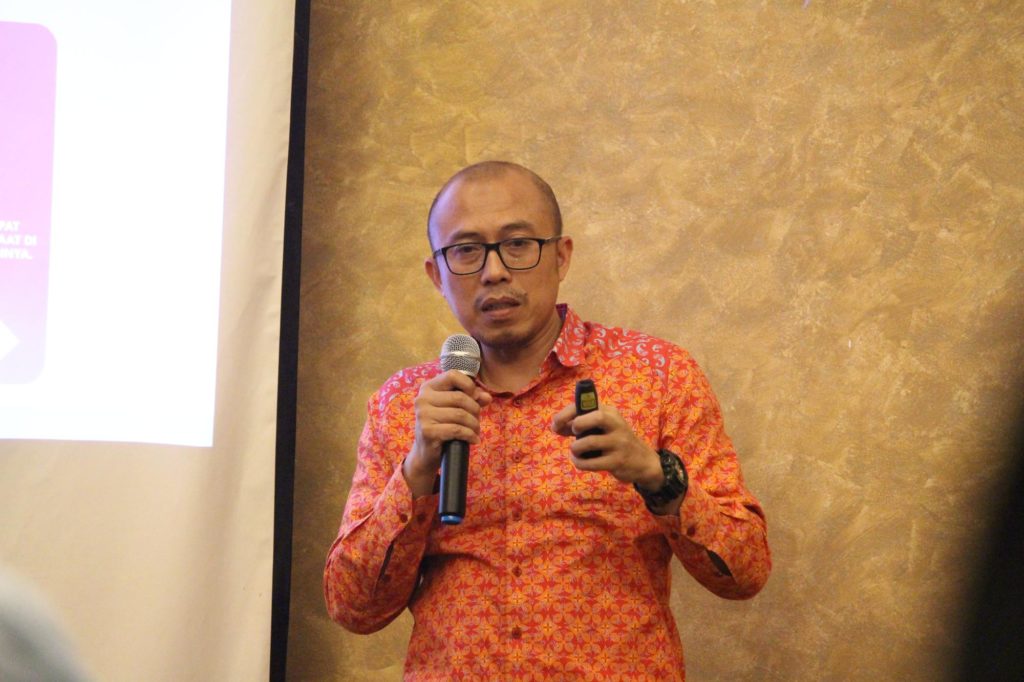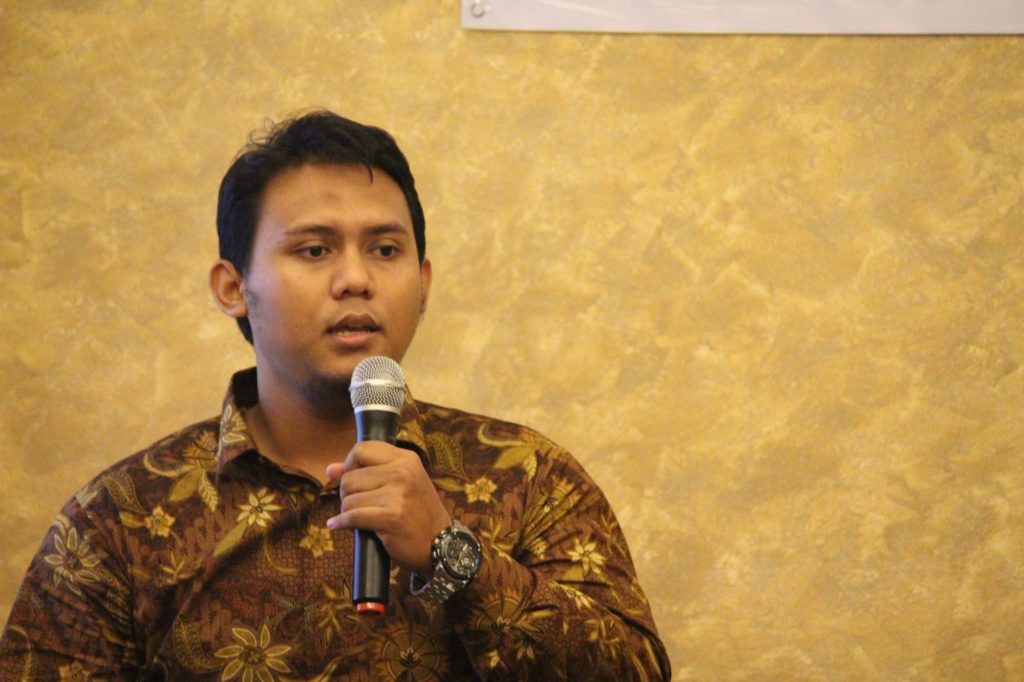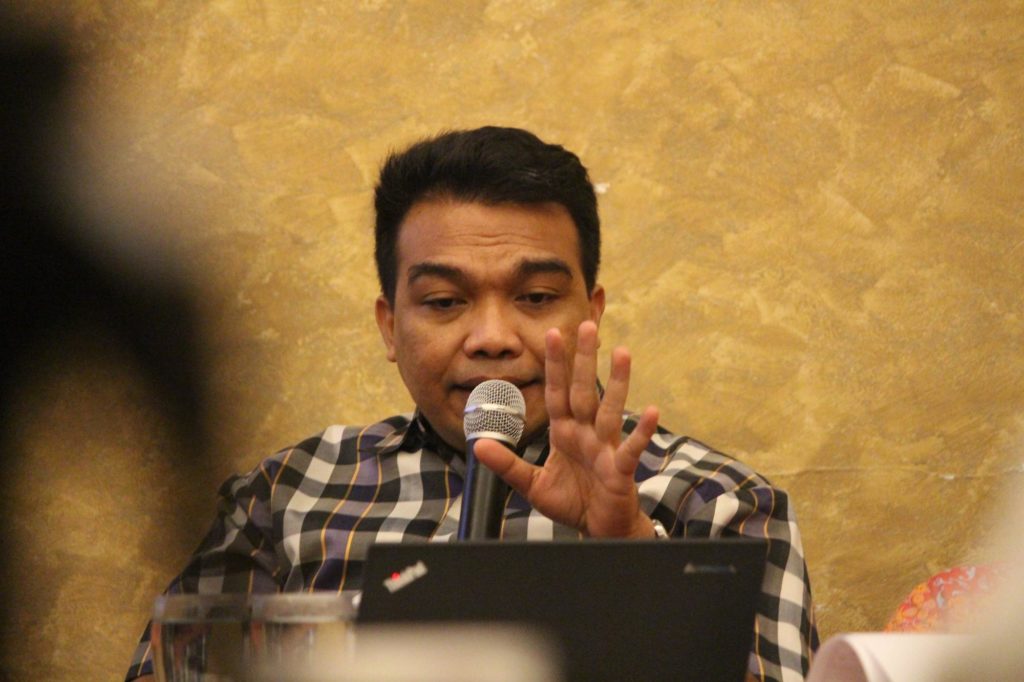Panama Papers in 2016 revealed names of public officials and world leaders, including 1038 Indonesian taxpayers. It clearly showed that the corporation could be used as a tool for cross-border money laundering. On the other hand, from around 1,387 trillion rupiah circulated in the mining sector, only 96,9 trillion that can be taxed.
Therefore, it is essential to identify beneficial ownership and encourage beneficial ownership transparency. PWYP Indonesia, last February 20-21, held training on “Understanding the Beneficial Ownership and Mapping the Corporate Ownership in Natural Resources Sector,” as a new approach used in civil society advocacy.

Isnu Yuana, Senior Legal Specialist of Indonesia Financial Transaction Reports and Analysis Center, explained that the benefits of Beneficial Ownership transparency are to protect the corporate and beneficial owner with good intentions, provide legal certainty for criminal liability, and to optimize the assets recovery.
According to him, currently, Indonesia has regulations that encourage beneficial ownership transparency, namely the Presidential Regulation number 13/2018 on the Implementation of the Know Your Beneficial Owner Principle for the Prevention and Eradication of Criminal Acts of Money Laundering and Terrorism Financing. The scope of said regulation covers the process of identification, verification, report, update, monitoring, law enforcement, and cooperation among institutions in implementing the beneficial owner transparency.
Isnu then explained about the general qualifications of a beneficial owner, namely an individual that can appoint or dismiss the directors, board of commissioners, administrators, coaches, or supervisors at the corporation. Also ones who can control the corporation, entitled to and or receive benefit from the corporation both directly and indirectly, and or is the real owner of the funds, or corporate shares.
Whereas specific qualifications of a beneficial owner, namely individuals who can meet the criteria referred in Presidential Regulation number 13/2018, are having more than 25% shares in the corporation as stated in the articles of association, receive benefit or profits of more than 25%, of profits obtained by the corporation, has the authority to appoint, replace, or dismiss members of the commissioners board, receive benefits from the corporation, and the real owner of corporate ownership.

According to Bagus Prasetyawan, the legislation team of the Directorate General of Mineral and Coal, Ministry of Energy and Mineral Resources (MEMR), said that there were already several policies in MEMR which were in line with the Presidential Regulation number 13/2018 on Beneficial Ownership transparency.
“Before the issuance of the Presidential Regulation no 13/2018, actually the MEMR has issued the Ministerial Regulation no 48/3017 concerning the Business Supervision in the Energy and Mineral Resources. Accompanied by the Circular Letter of DG Mineral and Coal no 16.E/30/DJB/2017 which requires companies to declare their beneficial owners, when they request a recommendation for stock changes, and changes of directors and commissioners,” explained Bagus.
After deregulation, MEMR issued a regulation requiring beneficial ownership disclosure in all permits in the mining sector including the issuance and renewal of permits, as well as auction of mining area (Wilayah Izin Usaha Pertambangan/Khusus).
“Beneficial ownership disclosure has been implemented in the MEMR, but it still limited to the permits issued by the central government. For permits issued by the provincial government, we still encourage the local government to implement it immediately,” said Bagus.

Emanuel Bria, Indonesia Country Manager of NRGI, said that Presidential Regulation no 13/2018 mandates the company to opening up the name of their beneficial owners. While the names registered in Directorate General of General Law Administration are usually only legal owner or nominee,” said Emanuel Bria.
Isnu acknowledged that the remaining home works after the beneficial ownership reporting by the companies is how to verify it. Indonesia mostly adopted the practices in the UK. Besides, it also uses various information sources, to check and recheck the beneficial ownership data.
Other issues surrounding beneficial ownership in Indonesia is public access on beneficial ownership information. Presidential Decree 13/2018 stated that beneficial ownership information openness is carried out in accordance with Public Information Disclosure Law. According to Bagus of MEMR, till today there has been no request for beneficial ownership from public. “After we receive such request, we will review and follow up according to the Public Information Disclosure Law,” said him.
Meanwhile, opening up the beneficial ownership data is one of ‘demand’ of the 2016 EITI Standard. The government of Indonesia has developed a roadmap of beneficial ownership transparency, in which Indonesia as an EITI member countries will publish the names, domiciles, and citizenship of the extractive company owners in 2020. However, in the latest EITI report (the 2016 report), the EITI reporting company has included the beneficial owner names.
The discussion also touched the issue of business ownership of public officials which might lead to conflict of interest. Niko Ruru, the secretary of Perkumpulan Lintas Hijau Kaltara, asked about policy that prohibits a public official from doing business and becoming a beneficial owner in a company. Responding to this, Isnu Yuana said that indeed no specific rules were governing this. However, Financial Services Authority, Bank Indonesia, and Indonesia Financial Transaction Reports and Analysis Center, usually give special attention to the Politically Exposed Person (PEP) which is categorized as a high-risk customer.